Few poets have been as essential, as influential to the evolution of a language—both the written word and the spoken tradition—as William Shakespeare was to English. His poems, particularly his sonnets, which became renowned for their particular form and human themes (love, death, time, memory, etc.), are still studied, memorized, recited, and enjoyed; his plays, likewise, are classics. Shakespeare’s words and stories are returned to again and again and have earned him the title of the “Immortal Bard.” In celebration of Shakespeare and his legacy, which continues to live on more than 400 years later, we’ve curated a selection of poems, books, and other resources.
mobileMenu
- Poems
- Poets
- Poem-a-Day
- National Poetry Month
- Materials for Teachers
- Literary Seminars
- American Poets Magazine
Main navigation
User account menu
The Influence of William Shakespeare
Page submenu block
From the Italian sonetto, which means “a little sound or song,” the sonnet is a fourteen-line poem written in iambic pentameter. While Italian poet and scholar Petrarch popularized the form in the 1300s, 300 years later, Shakespeare introduced a different type of sonnet, now called the “Shakespearean” or “English” sonnet. The Shakespearean sonnet has three quatrains and a couplet, with the rhyme scheme abab, cdcd, efef, gg, and the couplet provides the volta in the poem. Here is a roundup of Shakespeare’s most popular sonnets.
“Not from the stars do I my judgment pluck (Sonnet 14)”
“When I consider every thing that grows (Sonnet 15)”
“Shall I compare thee to a summer’s day? (Sonnet 18)”
“A woman’s face with nature’s own hand painted (Sonnet 20)”
“When in disgrace with fortune and men’s eyes (Sonnet 29)”
“When to the sessions of sweet silent thought (Sonnet 30)”
“Full many a glorious morning have I seen (Sonnet 33)”
“Not marble nor the gilded monuments (Sonnet 55)”
“Like as the waves make towards the pebbled shore (Sonnet 60)”
“Tired with all these, for restful death I cry (Sonnet 66)”
“That time of year thou mayst in me behold (Sonnet 73)”
“How like a winter hath my absence been (Sonnet 97)”
“From you have I been absent in the spring (Sonnet 98)”
“To me, fair friend, you never can be old (Sonnet 104)”
“Let me not the marriage of true minds (Sonnet 116)”
“Like as, to make our appetite more keen (Sonnet 118)”
“O thou, my lovely boy, who in thy power (Sonnet 126)”
“The expense of spirit in a waste of shame (Sonnet 129)”
“My mistress’ eyes are nothing like the sun (Sonnet 130)”
“When my love swears that she is made of truth (Sonnet 138)”
Essays on the Sonnet
Poetic Terms & Forms: The Sonnet
“On the Elasticity of the Sonnet and the Usefulness of Collective Experimentation” by Laynie Browne
Video
The History of the Sonnet
In this video, Chancellor Linda Gregerson considers the history of the sonnet leading up to Shakespeare.
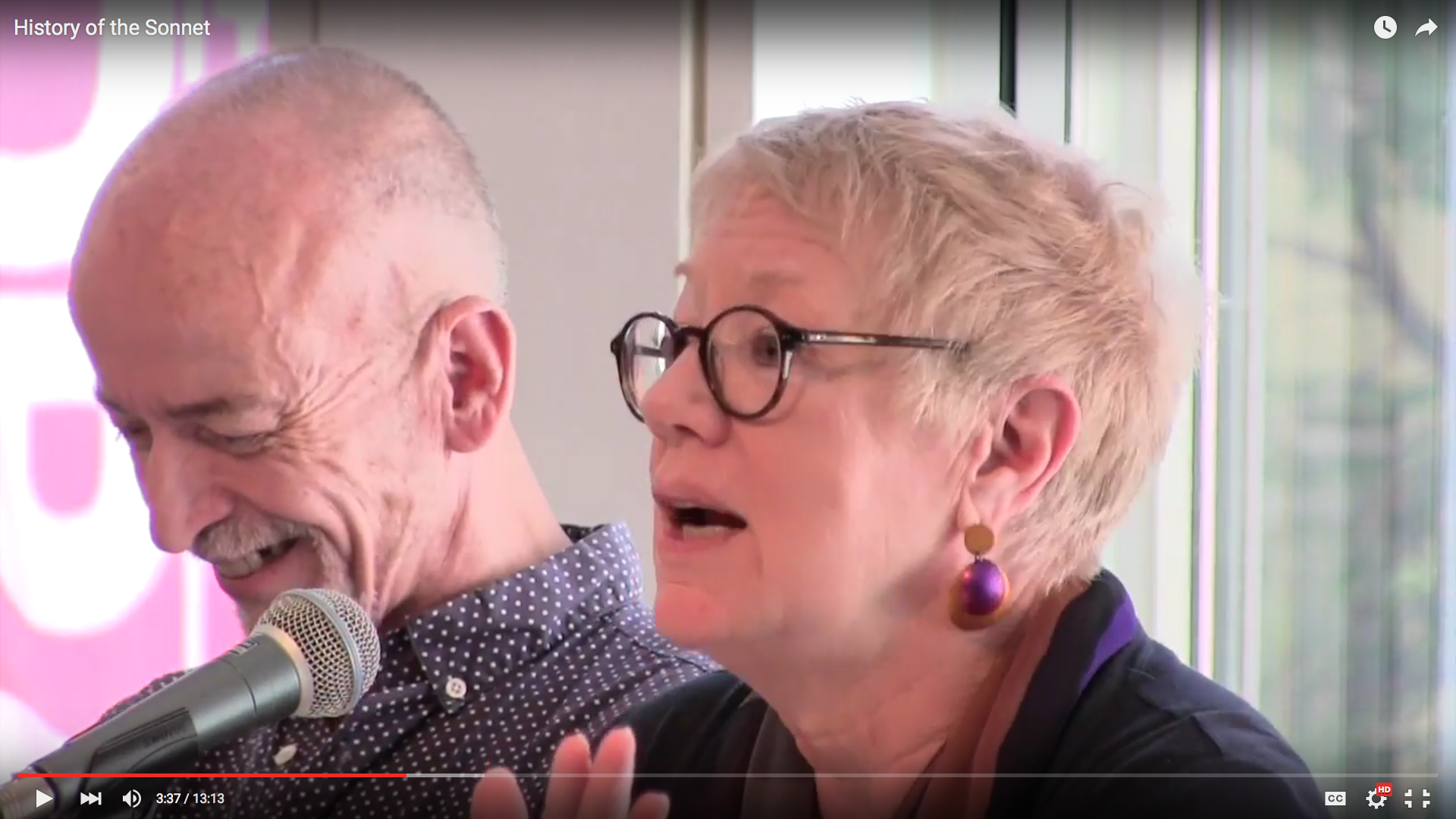
Shakespearean Sonnets
“Half-Hearted Sonnet” by Kim Addonizio
He’d left his belt. She …
“Sonnet 2” by Gwendolyn Bennett
Some things are very dear to me …
“the sonnet-ballad” by Gwendolyn Brooks
Oh mother, mother, where is happiness …
“Sonnet—Mutation” by William Cullen Bryant
They talk of short-lived pleasure—be it so …
“SONNET (silenced)” by Olena Kalytiak Davis
with her unearned admixable beauty …
“Sonnet” by Alice Dunbar-Nelson
I had no thought of violets of late …
“Putting in the Seed” by Robert Frost
You come to fetch me from my work to-night …
“Stammering translated sonnet in which the poet sends the rains of Havana to her love in New York” by Suzanne Gardinier
Got your message, here …
“Hap” by Thomas Hardy
If but some vengeful god would call to me …
“Chopin” by Emma Lazarus
A dream of interlinking hands, of feet …
“If We Must Die” by Claude McKay
If we must die—let it not be like hogs …
“Ozymandias” by Percy Bysshe Shelley
I met a traveller from an antique land …
“I shall forget you presently, my dear (Sonnet IV)” by Edna St. Vincent Millay
I shall forget you presently, my dear …
While certainly noted for his rhythm, meter, and themes, perhaps Shakespeare’s strongest influence on the English language was his diction. Scholars estimate that Shakespeare used at least 20,000 words in his work overall, and that he coined about 1,700 of those words. While many scholars are quick to point out that Shakespeare’s contribution to diction in this respect is commonly misunderstood—as some of his words and phrases may have simply been products of the time—it’s undeniable that Shakespeare maintained a degree of linguistic variety and innovation unmatched by his peers. Thus, he is credited with coining, or at least popularizing, many words and phrases we still use today. Take a look at a selection of these popular terms and their sources.
"All the world's a stage"
from As You Like It, Act II, Scene VII
"Be-all and the end-all"
from Macbeth, Act I, Scene VII
"Let slip the dogs of war"
from Julius Caesar, Act III, Scene I
"Double, double toil and trouble"
from Macbeth, Act IV, Scene I
"Fashionable"
from Troilus and Cressida, Act III, Scene III
"For goodness' sake"
from Henry VIII, Prologue
"In my heart of heart"
from Hamlet, Act III, Scene II
"Jealousy is the green-eyed monster"
from Othello, Act III, Scene III
"Knock knock! Who's there?"
from Macbeth, Act II, Scene III
"Livelong day"
from Julius Caesar, Act I, Scene I
"Seen better days"
from Timon of Athens, Act IV, Scene II
"Wear my heart upon my sleeve"
from Othello, Act I, Scene I
More Poems by Shakespeare
“Orpheus”
Orpheus with his lute made trees …
“Three Songs”
Come unto these yellow sands …
“Venus and Adonis”
But, lo! from forth a copse that neighbours by …
“When that I was and a little tiny boy”
When that I was and a little tiny boy …
Poems about Shakespeare
“Shakespeare’s Horse” by Joseph Harrison
He was a man knew horses, so we moved …
“To Shakespeare” by Frances Anne Kemble
Oft, when my lips I open to rehearse …
“On Shakespeare” by John Milton
What needs my Shakespeare for his honour’d Bones …
“The Airman Who Flew Over Shakespeare’s England” by Hyam Plutzik
A nation of hayricks spotting the green solace …
“an endnote and love song:” by Erin Moure
1. And if you were to leave me for my faults …
“Ever” by Meghan O’Rourke
Even now I can’t grasp “nothing” or “never” …
“Ophelia to the Court” by Meghan O’Rourke
My shoes are unpolished, my words are smudged …
“King Lear” by Lisa Sewell
For the father who wakes …
“After Reading ‘Antony and Cleopatra’” by Robert Louis Stevensen
As when the hunt by holt and field …
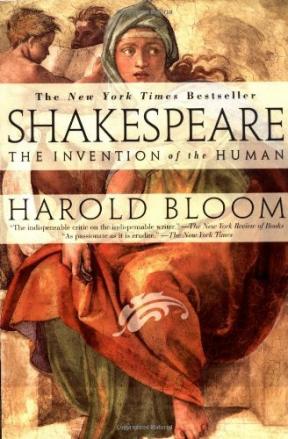 Shakespeare: The Invention of the Human
Shakespeare: The Invention of the Human
by Harold Bloom
Written by the preeminent literary critic Harold Bloom, Shakespeare: The Invention of the Human offers a comprehensive reading of each of Shakespeare’s plays.
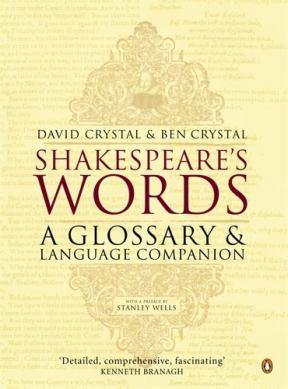 Shakespeare’s Words: A Glossary and Language Companion
Shakespeare’s Words: A Glossary and Language Companion
by David Crystal and Ben Crystal
This vital guide to understanding Shakespeare’s language contains over 14,000 words that might be unfamiliar or ambiguous to the modern reader.
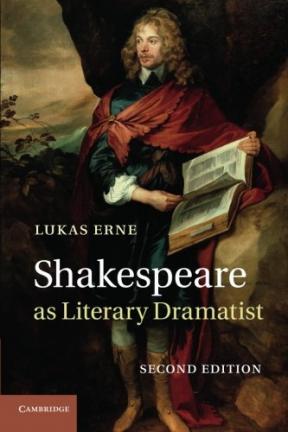 Shakespeare as Literary Dramatist
Shakespeare as Literary Dramatist
by Lukas Erne
In this groundbreaking study, Lucas Erne argues that Shakespeare wrote not only for the stage but also for the page, abridging his theatrical texts into shorter “literary” texts with a readership in mind.
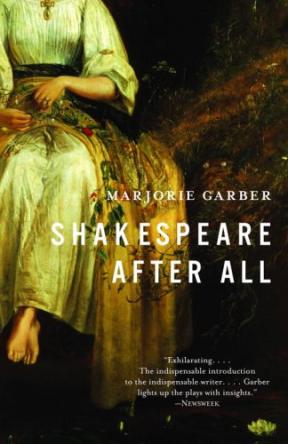 Shakespeare After All
Shakespeare After All
by Marjorie Garber
Shakespeare After All draws from author Marjorie Garber’s popular lecture courses at Harvard and Yale.
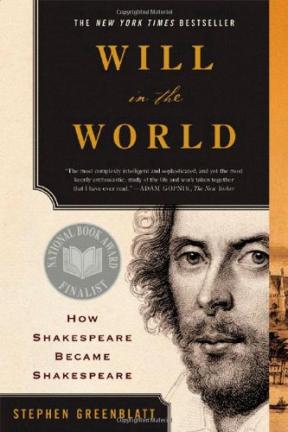 Will in the World: How Shakespeare Became Shakespeare
Will in the World: How Shakespeare Became Shakespeare
by Stephen Greenblatt
Will in the World, written by Harvard professor and literary critic Stephen Greenblatt, is a biography aimed at answering the question of how Shakespeare became Shakespeare.
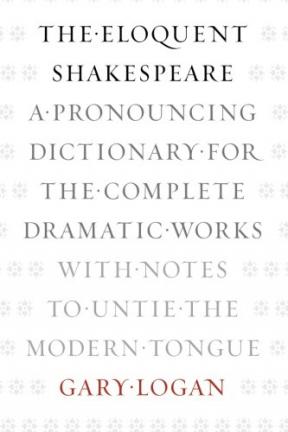 The Eloquent Shakespeare: A Pronouncing Dictionary for the Complete Dramatic Works with Notes to Untie the Modern Tongue
The Eloquent Shakespeare: A Pronouncing Dictionary for the Complete Dramatic Works with Notes to Untie the Modern Tongue
by Gary Logan
Subtitled “A Pronouncing Dictionary for the Complete Dramatic Works with Notes to Untie the Modern Tongue," this book aims to help modern actors and readers speak Shakespeare’s language with ease.
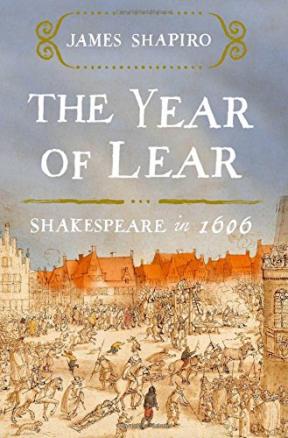 The Year of Lear: Shakespeare in 1606
The Year of Lear: Shakespeare in 1606
by James Shapiro
In The Year of Lear, preeminent Shakespeare scholar James Shapiro details the events of 1606 and shows how they affected Shakespeare and shaped the three great tragedies he wrote that year.
Poetry Books Inspired by Shakespeare
The Sonnets
by Ted Berrigan
Nets
by Jen Bervin
On Shakespeare's Sonnets: A Poets' Celebration
edited by Hannah Crawforth and Elizabeth Scott-Baumann
Collected Sonnets
by Edna St. Vincent Millay
For Young Readers
Tales from Shakespeare
by Charles and Mary Lamb
Shakespeare's Stories for Young Readers
by E. Nesbit
Teaching Resources
How to Teach Your Children Shakespeare
by Ken Ludwig
Lesson Plan: Mutant Shakespeare
from Don’t Forget to Write: for the Secondary Grades
